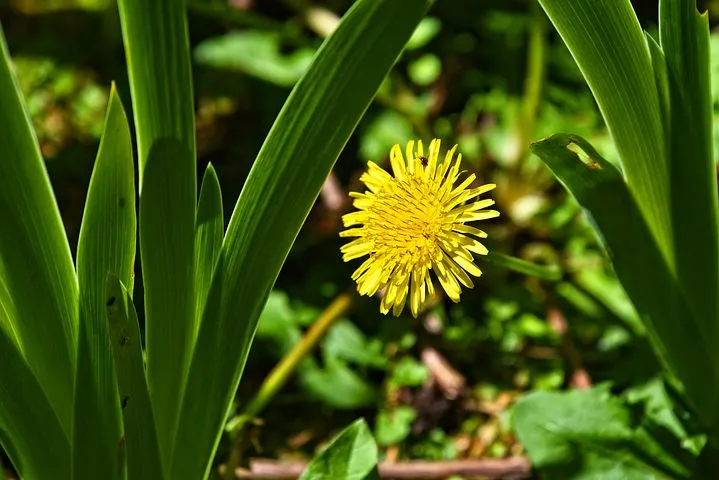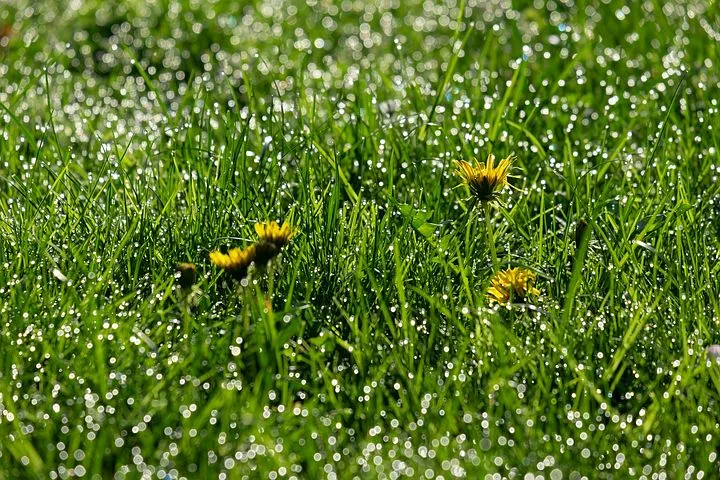
Source
MEANING OF WEEDS
Weed is any plant that grows in a place where it is not expected to grow or a plant which grows out of place. Weed can also be defined as a plant that grows where it is not desired in such a way that it constitutes nuisance either to man, livestock or crops.
All farmers have to work hard to prevent their crops from being invaded by weeds. Losses in crop yield due to weeds may be greater than those due to plant pests and diseases. If a farmer fails to control weed growth, the chances of successful crop production are seriously reduced.

Source
Effects/Economic Importance of Weeds
The harm done by weeds is due mainly to their competition with crops. The effects or economic importance of weeds include:
(1) Weeds Compete with Crops for Space When a young crop is developing, weeds rapidly crowd and smother the crop, and the space needed for healthy growth is reduced.
(2) Weeds Compete with Crops for Sunlight Weeds are capable of producing many large 1 leaves which shade crop seedlings and therefore reduce the amount of sunlight which 1s available for photosynthesis.
(3) Weeds Compete with Crops for Nutrients The roots of weeds rapidly develop and remove a considerable proportion of the available plant nutrients, thereby reducing the healthy growth of the crops.
(4) Weeds Habour Crop Pests and Diseases Some weeds may habour crop pests and diseases by acting as hosts, i.e, providing the insects with food when crops are not available.
(5) Weeds Compete with Crops for Soil Moisture: Their roots are capable of developing fast and removing a large portion of soil moisture required for the normal growth of the crops.
(6) Losses in Crop Yield: The combined com petition of weeds with crops eventually will result in low yield of crops.
(7) Weeds Compete with Crops for Soil Oxygen: Weeds are capable of developing long roots which remove a considerable amount of oxygen required for crop root respiration.
(8) Losses in Quality of Crops: The quality of harvested crops will reduce and this will affect the market value of such crops.
(9) Losses in Income of Farmers: The low yield coupled with the reduction in the quality of produce, and increase in the cost of controlling the weeds consequently lead to losses in the in
come of the farmers.
(10) Reduction in the Palatability of some Grasses: Weeds also invade pastures, reducing the palatability of useful grasses. (11) Some Weeds Are Toxic to Farm
Animals The leaves and stems of some weeds contain toxins which may be dangerous to farm animals.

Source
Summary of Reasons for Controlling Weeds
(i) Weeds cause losses in crop yields
(ii) Weeds lead to increased cost of farm operations, thereby leading to inefliciency of farm operations
(iii) Increased cost of harvesting
(iv) Reduce the quality of crop products (V) Reduce the quality of animal products, such as milk by imparting bad odour and taste to it.
(vi) Certain weeds are poisonous and hence kill animals that feed on them
(vii) Form alternative hosts for pests
(viii) Form alternative hosts for pathogenic organisms.
(ix) Compete with crop plants for nutrients, space and light.
(x) Reduce land value
(xi) Poisonous weeds are dangerous to man.
LET'S BE WATCHFUL ABOUT WEEDS IN THE
FARM.